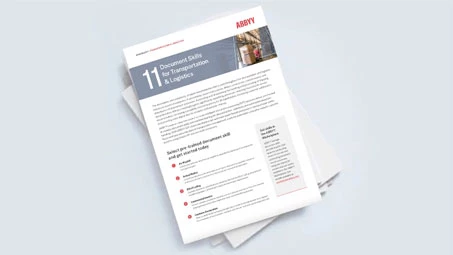
Elon Musk’s Pledge to Make Twitter Trustworthy: Can Process Mining Save Social Media Platforms and Restore Algorithmic Trust?
Andrew Pery
May 03, 2022

Elon Musk’s comments prior to and following the deal to take Twitter private appear to endorse the principle of transparency by “making the algorithms open source to increase trust”. However, the context within which transparency principles will be applied is unclear.
Download the data sheet: What is Process Mining, and Why Use Process Mining?
There are competing interests at play. Strategic goals may shape Twitter’s future direction. Will it continue to be the digital town square that promotes a marketplace of ideas or, will it focus on leveraging Twitter as an extension of Musk’s other business interests? Commercial versus public interests may also influence the scope of commitment to transparency, given the financing structure associated with taking Twitter private.
It certainly accentuates the momentum for increased regulatory oversight of social media platforms. On April 12, just ahead of the Twitter deal, Congress re-introduced the Algorithmic Accountability Act of 2022, the ambition of which is to require “covered entities”, including social media platforms, to comply with rigorous transparency obligations that mitigate adverse outcomes for protected classes.
How much emphasis will be placed on furthering a culture of trustworthy AI?
Twitter has invested significant resources on algorithmic bias assessment, including an algorithmic bias bounty challenge initiative that engaged the ethical AI hacker community to surface potential harms on protected groups.
While Elon Musk believes that “free speech is the bedrock of a functioning democracy,” it remains to be seen how far he will embrace common sense regulatory oversight and legislative reform, including proposed amendments to section 230 of the Communications Decency Act that would remove the current immunity of social media platforms from liability of published third party content.

Illustration by Lauren Margit Jones, Source: Vanity Fair
What is trustworthy AI?
In order to create AI systems that are transparent, unbiased, and fair, there are a number of ethical considerations that must be evaluated. AI ethics must take into account not only the technology itself, but also the data that is training and shaping the technology. AI is reflective of the data that powers it.
Algorithmic bias is a major concern not only for influencing what people see on social media platforms, but also fairness in algorithmic outcomes for public good given how much social media platforms have become so integral to every facet of our lives. Private ownership of such a pervasive platform may have an indelible impact on users, whereby their Twitter interactions could serve as a proxy for algorithmic decision-making in lending, health, employment, and social services.
Process Mining, a tool for trustworthy AI
It is important to note that legislative reforms notwithstanding, conformance with ethical AI principles to minimize historical, sample, and proxy bias, is critical for achieving trust. Data driven process discovery helps facilitate facts-based auditing of trustworthy AI compliance processes, visualize interactions between diverse stakeholders and disparate systems of record.

Given the complexity and variability of interactions implicit in achieving compliance with AI regulations, process mining can be a valuable tool to:
- help organizations gain visibility to various dimensions of prescribed process flows stipulated by AI regulatory and governance frameworks, and
- surface process bottlenecks and remediate compliance process gaps.
Process mining bridges the gap between data science and process science, using event data captured from different types of information systems. It is a data-driven approach that enables organizations to gain insight into interactions between people, systems, and organizations based on “as-is” visualization of process execution across the entire life cycle of AI-driven business processes that span AI model development, data governance, quality assurance, reliability, traceability and explainability of AI algorithmic outcomes.
Trustworthy AI has become a business-critical priority for organizations as it engenders consumer confidence, promotes brand equity and fosters sustainable growth.
To learn about process mining and how it can help your organization, keep reading here.






